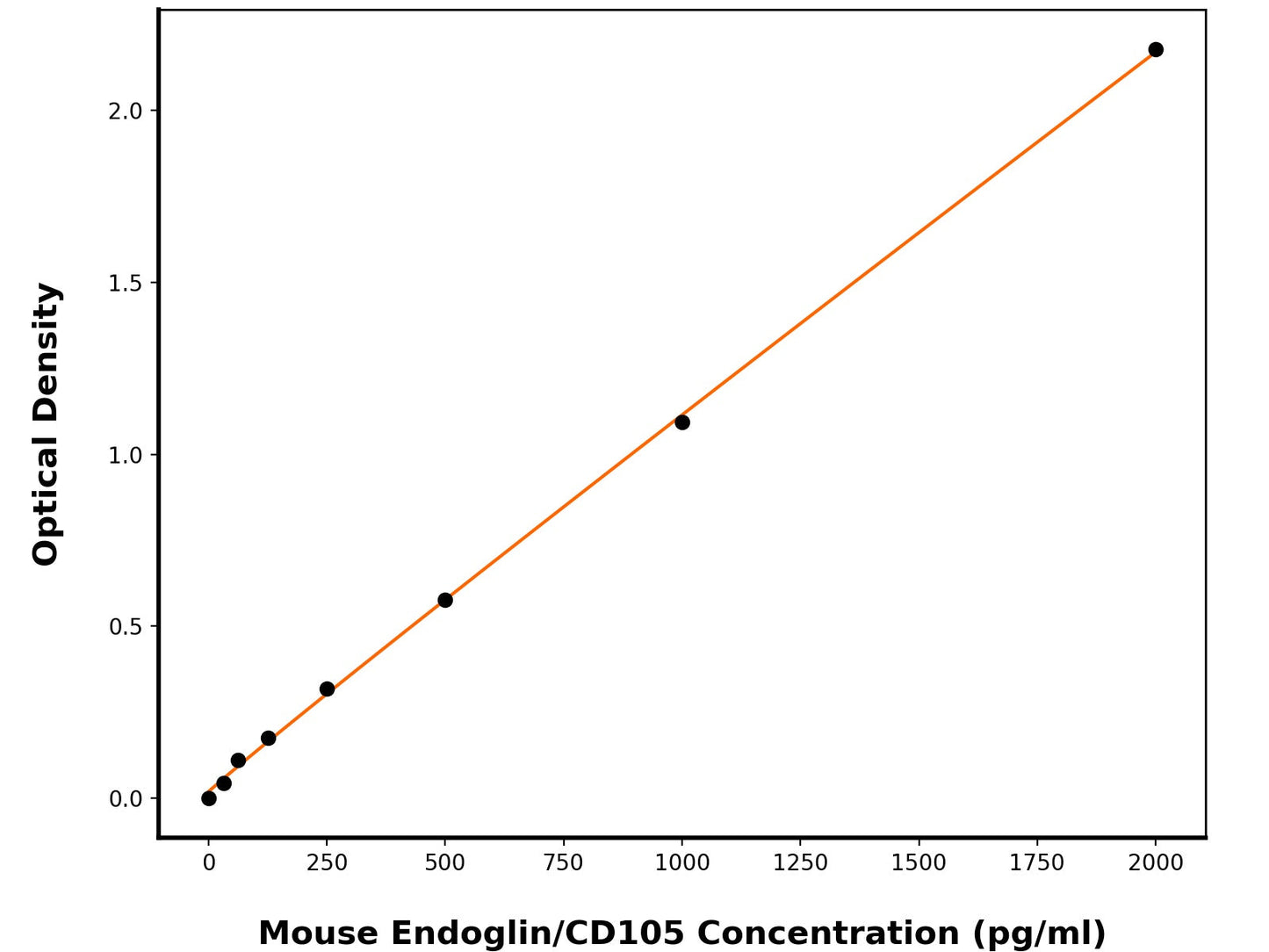1
/
of
1
Mouse Endoglin (ENG) ELISA Kit
Mouse Endoglin (ENG) ELISA Kit
This ELISA kit is designed to detect Mouse Endoglin (Mouse ENG). The assay plate has been pre-coated with mouse anti-Mouse Endoglin monoclonal antibody. When the sample containing Endoglin is added to the plate, it binds to the antibodies coated on the wells. Then, a horseradish peroxidase conjugated mouse anti-Mouse Endoglin Antibody is added to the wells and binds to Endoglin in the sample. After washing the wells, substrate solutions are added, and the color intensity is directly proportional to the amount of Mouse Endoglin present. The reaction is stopped by adding an acidic stop solution, and the absorbance is measured at 450 nm.
Catalog No:
BPE317
Regular price
$624.00 USD
Regular price
$480.00 USD
Sale price
$624.00 USD
Unit price
/
per
2 weeks
Couldn't load pickup availability
Product Details
Species Reactivity
Mouse
Sensitivity
10.05 pg/mL
Detection Range
31.25-2000 pg/mL
Sample Type
Serum, plasma, cell culture supernates
Incubation(s)
3.5 hour(s)
Research Areas
Cancer, Cardiovascular, Immunology, Stem cells
Background
Endoglin, also known as CD105, is a type I homodimeric transmembrane glycoprotein with a large, disulfide-linked, extracellular region and a short, constitutively phosphorylated cytoplasmic tail. Endoglin contains an RGD tripeptide which is a key recognition structure in cellular adhesion,,suggesting a critical role for endoglin in the binding of endothelial cells to integrins and/or other RGD receptors. Endoglin is highly expressed on vascular endothelial cells, chondrocytes, and syncytiotrophoblasts of term placenta. It is also found on activated monocytes, mesenchymal stem cells and leukemic cells of lymphoid and myeloid lineages. As an accessory receptor for the TGF-β superfamily ligands, endoglin binds TGF-β1 and TGF-β3 with high affinity not by itself but by associating with TGF-β type II receptor (TβRII) and activates the downstream signal pathways. In addition, in human umbilical vein endothelial cells, ALK-1 is also a receptor kinase for endoglin threonine phosphorylation, and mutations in either of the two genes result in the autosomal-dominant vascular dysplasia, hereditary hemorrhagic telangiectasia (HHT). Endoglin has been regarded as a powerful biomarker of neovascularization, and is associated with several solid tumor types.
Shipping Condition
Shipped on cold gel packs.
Storage Condition and Shelf Life
This product can be stored at 2-8C.
Analyte
Endoglin
Regulatory Status
For Research Use Only

